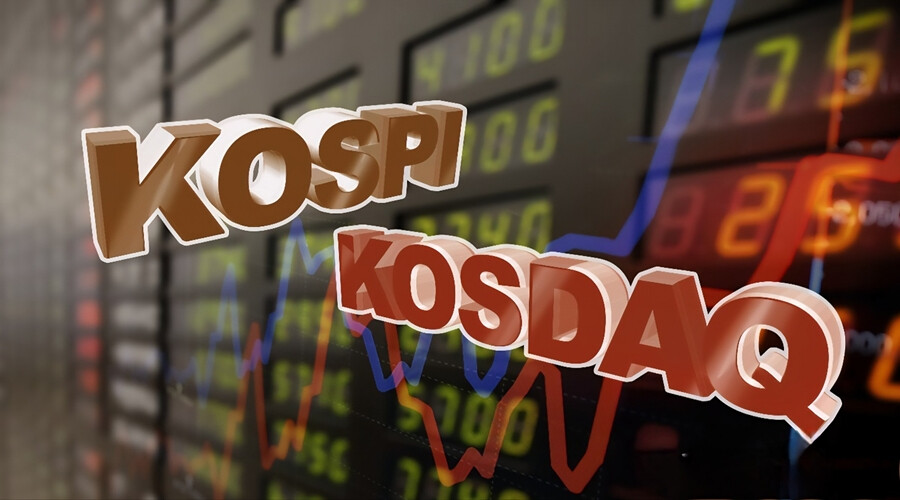
Seoul, South Korea – The Korea Composite Stock Price Index (KOSPI) defied escalating Middle East tensions on June 16, 2025, halting a single-day decline to surge and recover the 2940-point level for the first time in three years and five months. The benchmark index closed at 2946.66, marking a significant gain of 52.04 points (1.80%) from the previous trading day. During intraday trading, the KOSPI even touched 2947.07, surpassing the 2944.97 recorded on January 14, 2022, and firmly re-establishing itself in the 2940s.
This robust performance stands in stark contrast to the dip seen in U.S. markets late last week, which were impacted by concerns over military clashes between Iran and Israel and persistent inflation worries. The KOSPI's nearly 2% climb underscores a degree of resilience and a distinct market sentiment in South Korea.
In the KOSPI's main board, institutional and individual investors were net buyers, acquiring 252.6 billion KRW and 45.1 billion KRW, respectively. However, foreign investors, who had largely driven the recent upward trend, turned to net selling, offloading 322.3 billion KRW, marking their first net-selling day in nine trading sessions. Despite this foreign outflow, the broad market strength was evident.
Several key stocks posted impressive gains, contributing significantly to the KOSPI's rally. SK Hynix surged by 5.31%, reaching an all-time high of 248,500 KRW during trading. This continued its strong performance driven by robust demand for high-bandwidth memory (HBM) chips, crucial for artificial intelligence applications. Defense-related stocks also experienced historic highs, with Hanwha Aerospace climbing 2.65% and Hanwha Systems soaring by an remarkable 18.01%. These gains reflect a potential increase in investor interest in the defense sector amidst global geopolitical uncertainties. Overall, out of 937 stocks traded on the KOSPI, 621 (approximately 66%) recorded gains, indicating a broad-based market recovery. The KOSDAQ index also closed higher, gaining 8.40 points (1.09%) to finish at 777.26.
Market analysts largely downplayed the long-term impact of the Middle East situation on the Korean stock market. Lee Kyung-min, a researcher at Daishin Securities, commented, "While short-term uncertainty has indeed increased, the long-term impact of geopolitical risks on the stock market is limited." He further noted, "The possibility of retaliatory measures such as Iran blocking the Strait of Hormuz is not high, and its impact would also be limited." Kim Ji-won, a researcher at KB Securities, echoed this sentiment, stating, "The low probability of the Israeli-Iranian military clash escalating into an all-out war and the impracticality of blocking the Strait of Hormuz contributed to the improvement in weakened investor sentiment."
Despite the optimistic outlook from analysts, the likelihood of a swift resolution to the Middle East-originated geopolitical risks remains low. As such, a period of cautious "wait-and-see" trading is anticipated in the immediate future, with investors closely monitoring developments in the region.
In the Seoul foreign exchange market, the won-dollar exchange rate closed at 1363.8 KRW, down 5.8 KRW from the previous trading session. This appreciation of the Korean won, despite typical tendencies for the U.S. dollar to strengthen as a safe-haven asset during geopolitical crises, suggests a stronger underlying confidence in the Korean economy and its currency.
[Copyright (c) Global Economic Times. All Rights Reserved.]






























